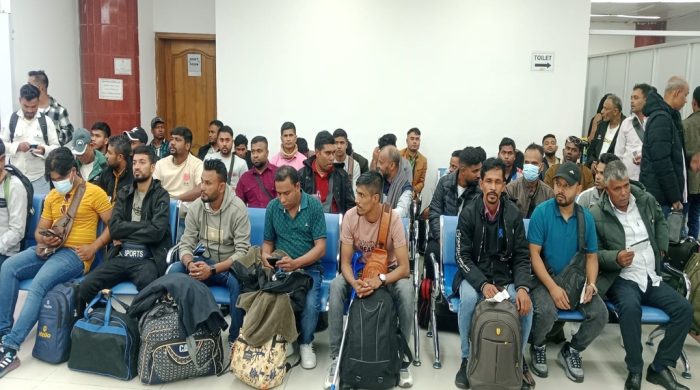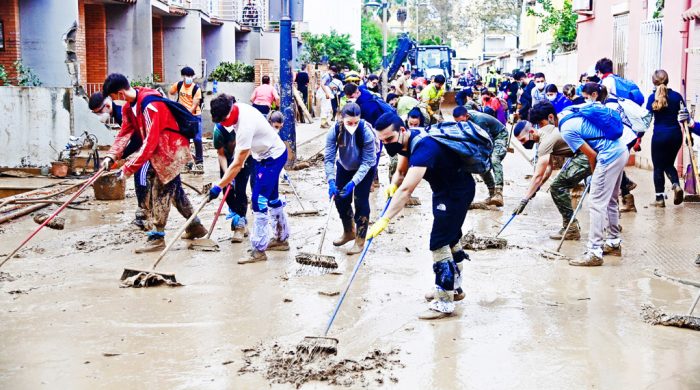Death toll from floods rises to 93 in German, 108 in Europe

- Update Time : Friday, July 16, 2021
- 111 Time View

The death toll from devastating floods in Europe soared to at least 108 on Friday, most in western Germany where emergency responders were frantically searching for missing people.
Adding to the devastation, several more were feared dead in a landslide in northern Germany on Friday triggered by floods.
Hundreds were unaccounted for in the country, while the death toll in Belgium jumped to 15 with more than 21,000 people left without electricity in one region.
Luxembourg and the Netherlands were also hammered by heavy rains, inundating many areas and forcing thousands to be evacuated in the city of Maastricht.
But Germany was the hardest hit, with unsuspecting residents caught completely off guard by the torrent dubbed the “flood of death” by Germany’s top-selling daily Bild.
“I fear that we will only see the full extent of the disaster in the coming days,” Chancellor Angela Merkel said from Washington late Thursday, where she met with President Joe Biden.
Streets and houses were submerged by water in some areas, while cars were left overturned on soaked streets after flood waters passed. Some districts were completely cut off from the outside world.
In Ahrweiler, several houses collapsed completely, drawing comparisons to the aftermath of a tsunami.
At least 24 people were confirmed dead in Euskirchen, one of the worst-hit towns just to the north.
“My empathy and my heart go out to all of those who in this catastrophe lost their loved ones, or who are still worrying about the fate of people still missing,” Merkel told reporters in Washington.
Adding to the town’s woes, a nearby dam remains at risk of giving way.
– Fearing the worst –
The number of casualties in North Rhine-Westphalia (NRW) has reached 43, bringing the national toll to at least 93, authorities said Friday.
Germany’s toll was likely to rise with large numbers of people still missing in NRW and Rhineland-Palatinate, the hardest-hit states.
In the devastated Ahrweiler district of Rhineland-Palatinate, around 1,300 people were unaccounted for, although local authorities told Bild the high number was likely due to damaged phone networks.
Regional interior minister Roger Lewentz told local media that up to 60 people were believed to be missing, ” and when you haven’t heard from people for such a long time… you have to fear the worst”.
“The number of victims will likely keep rising in the coming days,” he added.
Several people were dead and missing after a landslide in Erftstadt-Blessem in NRW, local officials said Friday.
“Houses were largely swept away by the water and some collapsed,” the Cologne local authority said on Twitter, while a spokeswoman for the local government told AFP there were “confirmed” deaths.
– Billions in damages –
Gerd Landsberg, head of the German Association of Towns and Municipalities, said the cost of the damage was likely to run into “billions of euros”.
Winfied Koeller, a resident of the city of Hagen in NRW, told public broadcaster WDR he had “never experienced anything like this in my life” after being rescued from his car by firefighters.
Also in Hagen, Sebastian Kiefer was helping to fill sandbags in front of a local restaurant. “It’s crazy when you think about the power behind the water,” he told WDR.
Konstantin Hartmann, from the village of Roetgen-Mulartshuette in the Eifel region, told the broadcaster his barn had been completely destroyed. “It’s all ruined in there. Nobody helped us, nobody.”
In Belgium, the army has been sent to four of the country’s 10 provinces to help with rescue and evacuations.
The swollen Meuse river “is going to look very dangerous for Liege”, a nearby city of 200,000 people, warned Wallonia regional president Elio Di Rupo.
– Climate change? –
The severe storms have put climate change back at the centre of Germany’s election campaign ahead of a September 26 poll marking the end of Merkel’s 16 years in power.
Germany “must prepare much better” in future, Interior Minister Horst Seehofer said, adding that “this extreme weather is a consequence of climate change”.
Because a warmer atmosphere holds more water, climate change increases the risk and intensity of flooding from extreme rainfall.
In urban areas with poor drainage and buildings located in flood zones, the damage can be severe.
Political candidates were quick to comment following the floods.
North Rhine-Westphalia premier Armin Laschet, the conservative running to succeed Merkel, called for “speeding up” global efforts to fight climate change, underlining the link between global warming and extreme weather.

























